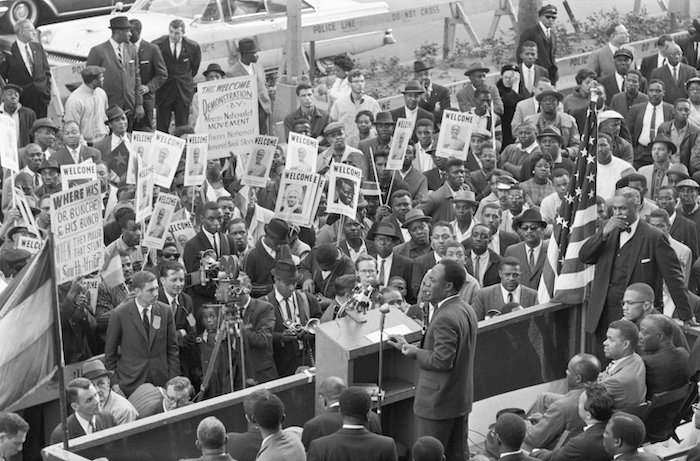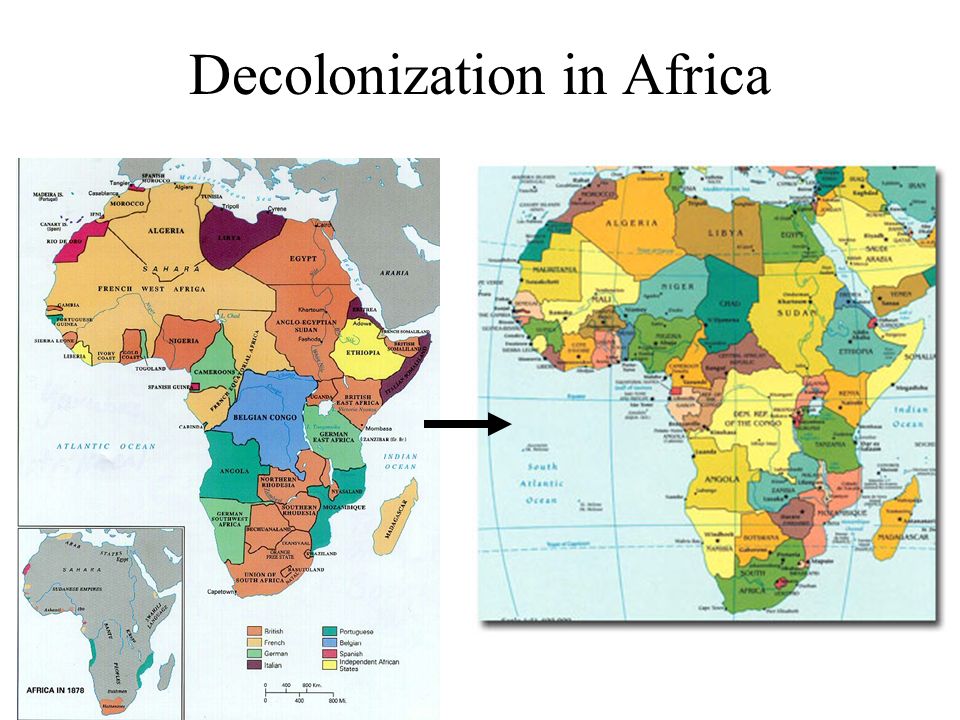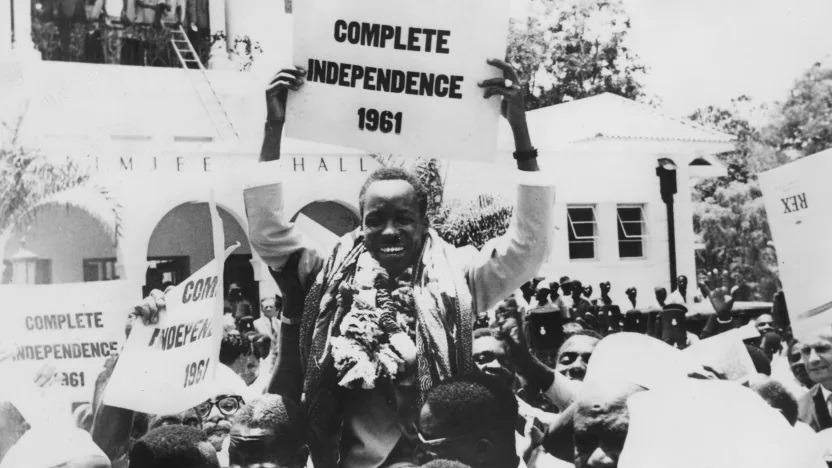Last Updated on January 15, 2023
This is the story of Africa’s struggle for independence and the decolonization movement that shaped the continent’s history. The twentieth century saw great change in Africa as people rose against European colonizers and fought for independence. From the ashes of oppression and injustice arose a new Africa, free and determined to forge its path.
The story of Africa’s independence and decolonization movements is one of bravery, sacrifice, and determination in the face of overwhelming odds. It is the story of a people who refused to be silenced and fought for their right to self-determination.
Here is the rich history of Africa’s decolonization and the courageous individuals who led the charge for freedom.

The Road to Independence
Africa’s journey to independence and decolonization was long and complicated. Both peaceful protests and violent uprisings marked it. Undoubtedly, the continent’s diverse cultures and ethnicities, combined with the competing interests of European colonial powers, made achieving independence difficult.
The first signs of colonial resistance appeared in the late nineteenth and early twentieth centuries, with leaders such as Samory Touré in West Africa and Mwanga II in Uganda opposing European encroachment on their territories. However, it was not until after World War II that the independence movement got traction.
One of the key factors in Africa’s decolonization was the war’s weakening of European colonial powers. The conflict’s destruction and economic devastation rendered many European countries unable to maintain their overseas empires.
At the same time, the war caused a shift in global political attitudes. Along with the rise of anti-colonialism and the belief in the right of all peoples to self-determination.
Egypt became the first African colony to gain independence in 1952, followed by Sudan in 1956. Other countries quickly followed suit, with Ghana becoming the first in Sub-Saharan Africa to gain independence in 1957.
Decolonization was not always peaceful, and many countries faced violent uprisings and civil wars as they fought for independence. For example, Algeria, Kenya, and Angola all experienced bloody conflicts as they sought independence from colonial rule.
Despite the difficulties, by the 1960s, most African colonies had gained independence. However, the decolonization process was not complete, as many countries continued to face issues such as poverty, inequality, and political instability even to date.
Read: The Trans-Saharan Slave Trade and its Impact on Africa

The Scramble for Africa
The Scramble of Africa, also known as the Partition of Africa and the Conquest of Africa, is the invasion, occupation, division, and colonization of Africa by seven Western European powers.
By the end of the Scramble for Africa in 1914, Europeans controlled 90% of the continent, up from 10% in 1870.
The Berlin Conference in 1884 served as the motivation for the Scramble for Africa. The conference established rules for European colonization and trade in Africa. In the last quarter of the nineteenth century, there were significant political rivalries among European empires. Africa was partitioned without the need for wars between European nations.
Besides Liberia and Ethiopia, seven European nations took control of all of Africa. They were aided in this endeavor by the opening of the Suez Canal, which connected the Mediterranean to the Red Sea and cut many kilometers off the journey to Africa’s east coast and India.
They attended an international conference on Africa in Berlin in 1884, fully aware that their colonial ventures would lead to an inevitable clash among themselves. The conference allowed European powers to divide Africa, ignoring African peoples, cultures, and natural boundaries.
Any African resistance was crushed by the large and well-equipped European armies. Others suffered hardship and hunger as their traditional ways of life were destroyed. They were forced to work as cheap labor in mines and on plantations, growing crops for export to Europe, such as cotton, tea, coffee, and cocoa. To pass the time, European settlers hunted many species of wild animals, almost to extinction.
Africans were treated no better than slaves, and they had no right to vote or to say how their country should be run.

The Birth of the Independent Movement
The Pan-African movement, which sought to unite Africa’s diverse cultures and ethnicities under a common banner of anti-colonialism, was one of the earliest forms of resistance.
This late-nineteenth-century movement, led by figures such as W. E. B. Du Bois and Marcus Garvey — advocated for the abolition of European colonial rule and establishing of independent African nations.
The African National Congress (ANC) in South Africa was another early resistance movement. The ANC, founded in 1912, was initially focused on campaigning for civil rights for black South Africans. But it quickly became a vocal critic of the country’s racist apartheid system and a leader in the struggle for independence.
As World War II came to an end in the 1940s, the African independence movement gained traction. The war’s destruction and economic devastation had weakened European colonial powers’ grip on the continent, and many African leaders saw an opportunity to push for independence.
The Congress of Berlin also sparked resentment and anger among Africans who were not consulted or represented in the negotiations.
The Struggle For Independence
During the colonial era, European powers such as Britain, France, and Belgium ruled over large parts of Africa. They imposed their government, economy, and cultural systems on the African people. These colonial powers took resources and labor from the colonies while doing little to improve the lives of the colonized people.
The 1940s saw the first major push for African independence, led by leaders such as Kwame Nkrumah in Ghana and Patrice Lumumba in Congo. These leaders, many of whom were educated in Europe and influenced by Pan-Africanism and anti-colonialism, demanded immediate independence and an end to foreign powers’ exploitation of Africa.
However, the European powers were unwilling to give up their colonies easily. They used various tactics to maintain control, including repression, divide-and-rule tactics, and manipulation of ethnic tensions. Despite these efforts, the independence movement continued to gain momentum in the 1950s and 1960s, with Ghana leading the way.
Read: The Impact of European Colonialism on African Societies and Culture

The Aftermath of Independence and Decolonization
Africa’s post-independence and decolonization period was marked by both progress and challenges. While many African countries achieved independence and self-government, they also faced several challenges in the following years. And most are still bearing the consequences.
The lack of infrastructure and resources left behind by colonial powers was one of the major challenges that newly independent countries faced. Many countries were left with underdeveloped economies and few necessities such as roads, hospitals, and water. Because of the lack of infrastructure, the new governments found it difficult to provide for their citizens and raise their standard of living.
Another challenge that many countries faced was the colonial powers’ legacy of division and conflict. To maintain control during the colonial period, European powers frequently matched different ethnic and religious groups against one another. This legacy of divide and rule led to mistrust between different groups and lasted long after independence.
Despite these obstacles, some African countries have made significant progress since their independence. They have built strong economies and raised their citizens’ living standards. Some countries, such as Ghana, South Africa, Egypt, and Senegal, have established themselves as models of democracy and stability.
Education, healthcare, and women’s rights have all improved in many African countries in recent years. They have improved their infrastructure, promoted economic development, and reduced poverty with the help of international organizations and development programs.
Read: The Revolutionary Emergence of Modern Nation-States in Africa

What Do Independence and Decolonization Mean for Africa Today?
Independence is a fundamental principle underlying the human experience. It is the ability to govern oneself, make decisions about one’s life, and live independently of others. Independence has been a long-sought goal for Africa, one that has been pursued for centuries.
Today, Africa has made significant progress in achieving independence, but much work still needs to be done. This is because most African countries have not fully attained the height they should have, even after several years of independence.
Pointing out that independence means the ability to make decisions about one’s own life, to live free from the control of others, to govern oneself, and to live in peace and security.
Africa must continue to work towards these goals to achieve true independence and to realize its full potential as a continent.
Thomas Sankara once urged Africans not to seek help from foreign countries, especially westerners. Most African countries are still reliant on these European powers for financial help. Africa may not experience true independence unless they wiggle free from their European masters. But the road is still long, and Africans should be proud of the progress made so far.
Before you go…
Hey, thank you for reading this blog to the end. I hope it was helpful. Let me tell you a little bit about Nicholas Idoko Technologies. We help businesses and companies build an online presence by developing web, mobile, desktop, and blockchain applications.
We also help aspiring software developers and programmers learn the skills they need to have a successful career. Take your first step to becoming a programming boss by joining our Learn To Code academy today!
Be sure to contact us if you need more information or have any questions! We are readily available.











